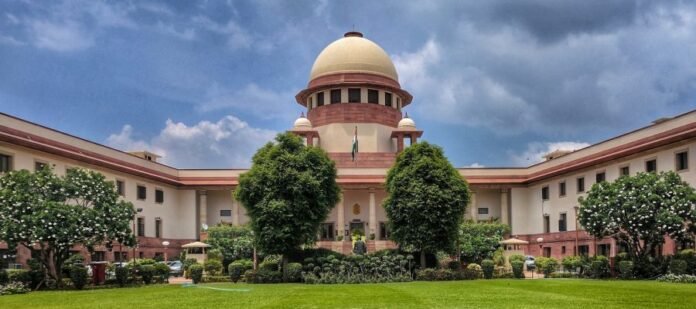Supreme Court rules insurer must compensate victims despite route permit violation, ensuring justice in motor accident compensation cases.
In a significant judgment reinforcing the social justice purpose of motor vehicle insurance, the Supreme Court ruled that insurers cannot deny compensation solely due to a route permit violation.
Body
In a landmark ruling aimed at safeguarding accident victims’ rights, the Supreme Court of India has held that an insurance company cannot refuse to compensate victims of a motor accident merely because the offending vehicle had deviated from its permitted route. The Court reaffirmed that the primary purpose of motor vehicle insurance is to protect victims, not to penalize them for procedural lapses by vehicle owners.
Delivering the judgment, the bench emphasized that technical violations such as a deviation from the permitted route cannot override the social welfare intent of the Motor Vehicles Act, 1988. The Court observed:
“To deny compensation to an innocent victim of an accident merely because of a deviation from the route permit would be offensive to the sense of justice.”
The bench further clarified that while insurers are obligated to pay compensation to the claimants, they retain the right to recover the amount from the vehicle owner if a breach of policy terms, such as a route permit violation, is established.
“The insurer’s duty to the public stands foremost. The company, however, is not without remedy—it may initiate recovery proceedings against the vehicle owner,” the judgment stated.
Balancing Technical Breach and Social Purpose
The Court’s ruling is a continuation of its consistent jurisprudence emphasizing compassionate and purposive interpretation of insurance law. The justices noted that denying compensation on hyper-technical grounds undermines the very spirit of welfare legislation.
Drawing parallels to earlier decisions, the Court reiterated that insurance policies serve not only a contractual function but also a social protection mechanism for the victims of road mishaps.
“Motor insurance exists to ensure that innocent third parties are not left uncompensated for the negligence of others,” the Court remarked.
Legal Context and Broader Implications
Under the Motor Vehicles Act, transport vehicles are granted route permits specifying the routes they are allowed to ply. A deviation from such routes can amount to a violation of permit conditions. However, until now, several insurers had cited such breaches to deny claims, arguing that they constitute a breach of policy terms.
Legal experts believe this ruling will strengthen the principle of victim-centric justice in motor accident cases. Speaking to The Legal Observer, a senior advocate noted that the decision “restores equilibrium between technical compliance and social responsibility,” ensuring that victims are not deprived of their lawful entitlement due to procedural lapses.
The Court also underscored that insurers must not treat the policy as an excuse to escape liability. Rather, it is a tool of financial protection, especially crucial in a country witnessing thousands of road fatalities annually.
Reaffirming Precedent and Future Guidance
The Supreme Court’s verdict aligns with its earlier pronouncements in cases like National Insurance Co. Ltd. v. Swaran Singh and Skandia Insurance Co. Ltd. v. Kokilaben Chandravadan, where it upheld that insurers must first pay compensation and then recover the amount from the insured if a breach is proven.
The judgment is expected to provide much-needed clarity for Motor Accident Claims Tribunals (MACTs) and High Courts, many of which face conflicting interpretations regarding insurer liability in cases involving route or permit violations.
By reaffirming this principle, the Court has reinforced public faith in the justice system and the protective purpose of insurance laws. It ensures that accident victims are not trapped in legal limbo, awaiting relief due to disputes between owners and insurers.
Conclusion
This Supreme Court decision reiterates the judiciary’s commitment to balancing contractual obligations with public welfare. By mandating that insurers pay compensation first—then recover from the owner if necessary—the Court has ensured that justice is swift, meaningful, and humane.
For more in-depth legal updates, visit The Legal Observer or explore our National News Section.
Watch expert commentary on our official YouTube Channel.




